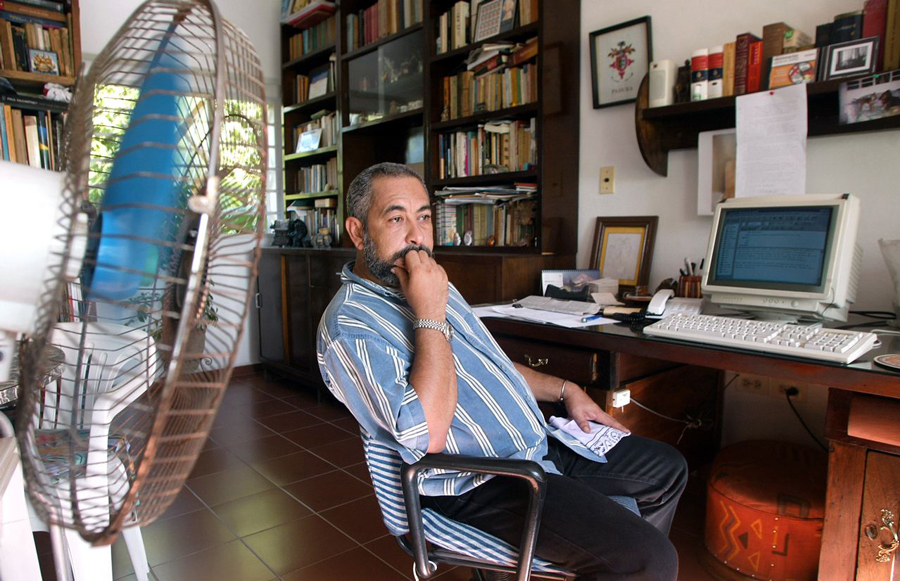Posted by: lisaparavisini | May 17, 2009Cuban writers Wendy Guerra and Leonardo Padura Fuentes choose to remain in Cuba
The Miami Herald has published a profile of Cuban novelist Wendy Guerra as one of several writers who have chosen to remain in Cuba despite achieving literary success abroad. Guerra is a young writer whose novels Todos se van (Everyone leaves, 2006) and Nunca fui primera dama (I was never first lady, 2008) have been published to great success in Spain by Brugueras but are not available to Cubans except as single copies that circulate from person to person. She is, however, a writer who, unlike many of her contemporaries, is not contemplating leaving Cuba. “I don’t want to leave here,” she tells the Miami Herald, I love my country. My novels will undoubtedly be published in Cuba when they have lost their relevance,” like has been the case with earlier writers like José Lezama Lima and Virgilio Piñera. “It seems like Todos se van has become a sort of cult book in Cuba,” she adds, explaining that the book circulates clandestinely through photocopies.
Guerra’s work, she claims, although dealing with problematic aspects of current Cuban conditions, is not intended to be political. Todos se van, for example, uses the form of an intimate diary to trace its protagonist’s path through a society “in hibernation” that everyone, in one form or another, ends up abandoning. In Cuba, Guerra says, “everything is politics. You have to leave Cuba in order to escape politics, my mother used to say.” Speaking of Cuba’s reputation for restricting freedom of expression, she adds that, her home island “is a land surrounded by water and silence.”
Unlike Guerra’s work, Padura’s novels are published and distributed in Cuba as well as abroad. Padura, who thinks of Cuba, especially of Havana, as the “protagonist of my work,” says he has never had problems as a writer in Cuba, although he experienced problems as a reporter, since the Cuban media “do not exist to describe reality or feed social reflection.” His goal, however, is not to be political. “I hate politics,” he argues, “I don’t want my books to be political soapboxes. What I am interested in is in describing a social reality that includes corruption, exile, and marginality.” Padura is completing a new novel called El hombre que amaba a los perros (The man who loved dogs), to be published in Spain in September. Its subject is Ramón Mercader’s attempt to assassinate Trotsky. (Mercader spent the last four years of his life in Havana.) “What interests me in this book is to show how the great Utopia of the 20th century disappeared.”
Despite its myriad problems, Padura, like Wendy Guerra, remains committed to his country, vowing never to leave.
For more on the subject see the article by Sylvie Briand at http://www.miamiherald.com/1321/story/1047257.html
The photograph of Wendy Guerra is by Phillipe Matsas/Opale for the Miami Herald.

